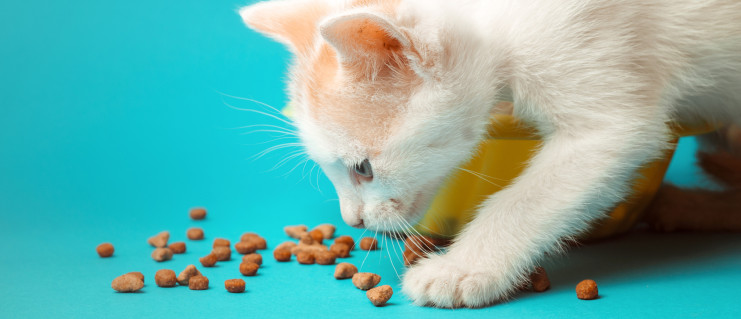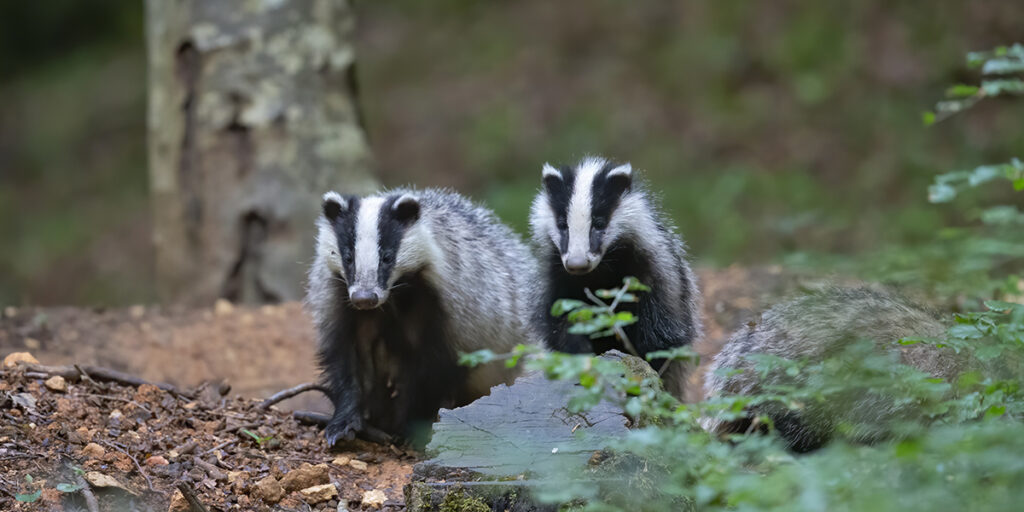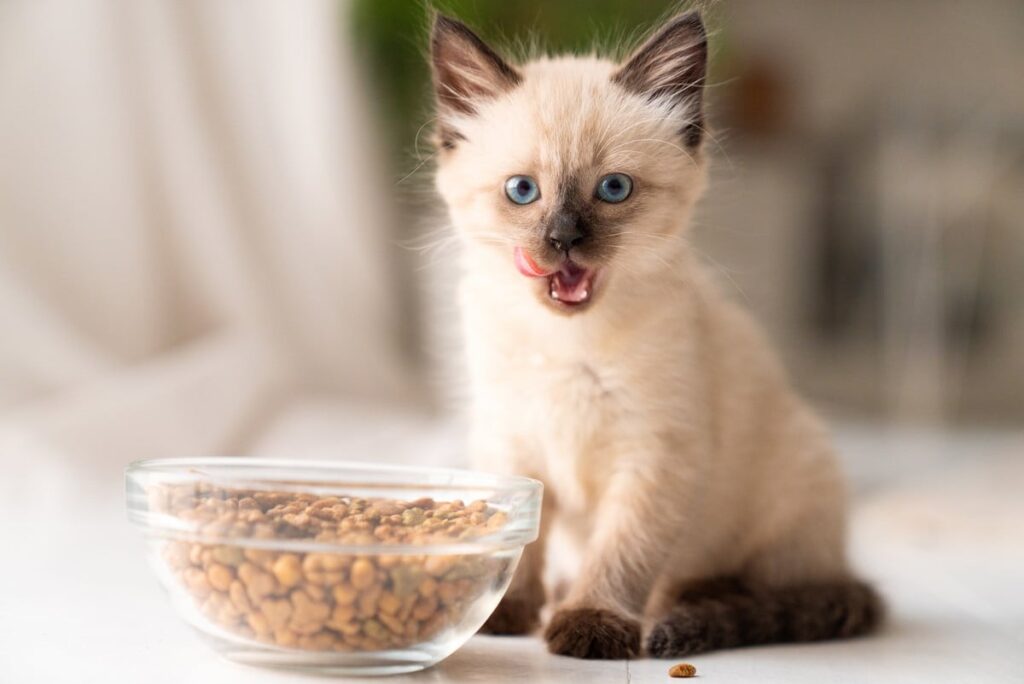
Cats, these adorable four-legged companions, are an integral part of our daily lives. To ensure their well-being and good health, it is essential to understand their dietary needs. In this article we will explore the ideal food for our domestic felinesincluding meat, fish and proteins.
Cat and food: what is their favorite food?
Cats are carnivorous animals, which means their preferred diet consists primarily of meat. In the wild, cats hunt prey such as birds, mice and small mammals. In captivity, it is important to provide them with a balanced diet adapted to their nutritional needs. Commercially available cat foods are specially formulated to meet these needs, containing essential proteins, fats, vitamins and minerals. It is recommended to choose high-quality foods and consult a veterinarian to determine each cat's specific dietary needs based on age, weight and health status.
What can you give a cat other than kibble?
Apart from kibble, there are several food options for cats and kittens:
- Wet food: Cans or pouches of wet cat food are a popular alternative to kibble. This food contains a high water content, which can help keep your cat hydrated. Additionally, many cats find wet food tastier than kibble.
- Raw or cooked meat: Some owners choose to feed their cats raw or cooked meat. Raw meat should be handled with care to avoid the risk of bacterial contamination, and it is recommended to consult a veterinarian to ensure the diet is balanced and meets your cat's nutritional needs.
- Vegetables and fruits : Although cats are carnivores, some may enjoy small amounts of vegetables or fruits like cooked zucchini, grated carrots, chunks of squash, or even pureed pumpkin. However, sweet fruits like grapes and citrus fruits should be avoided as they can be toxic to cats.
- Homemade food: Some owners prepare their cat's food themselves from fresh ingredients. If you choose this option, make sure you balance the diet by including essential nutrients such as proteins, fats, vitamins and minerals.
What does a cat eat: a carnivorous diet
What foods should you not give to a cat?
Unlike humans and dogs, which are omnivores, cats are animals strict carnivores. This means that their usual diet should consist mainly of meat and fish. They require a high intake of animal proteins and essential amino acids that are only found in the flesh of other animals. Thus, their body is not adapted to properly digest and assimilate foods of plant origin, such as vegetables.
Cats and vegetables
Some cats may enjoy small amounts of vegetables in their diet, but these are generally not a significant part of their diet:
- Cooked zucchini
- Cooked or grated carrots
- Cooked pumpkin or pumpkin puree (especially to aid digestion)
- Cooked green beans
- Cooked peas
- Cooked sweet potato (without seasoning)
- Cooked broccoli (in small quantities)
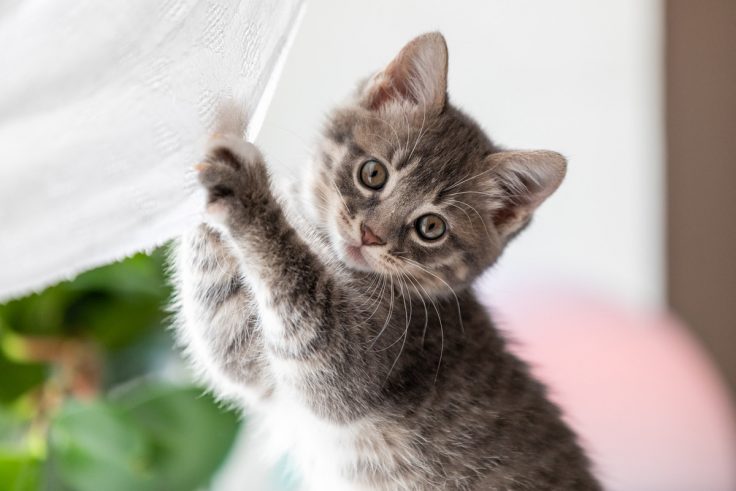
What does a cat eat: no or few vegetables
Cats and fruit
As with vegetables, some fruits can be given to cats safely in small quantities. Here are some examples of fruits that cats can eat in moderation:
- Pumpkin : Pumpkin is often recommended by veterinarians to help regulate the digestion of cats, especially in cases of constipation or diarrhea. Be sure to feed cooked, unsweetened pumpkin.
- Watermelon : Watermelon is mostly water and is relatively low in calories. Cats can eat small pieces of watermelon without seeds or skin, but it should not be a significant part of their diet.
- Banana : Bananas are high in potassium and fiber, but they are also high in sugar. Cats can eat small pieces of banana from time to time, but they should not eat them regularly.
- Apple : Apples are a source of dietary fiber, but cats can only eat small amounts of apple, avoiding the seeds and core which contain potentially toxic compounds.
- Blueberries and strawberries: These fruits are rich in antioxidants and vitamins, but cats should consume them in moderation due to their sugar content.
Cats and melon
Melon is a sweet, juicy fruit that many people enjoy, but is it safe for cats? In small quantities, melon is generally not toxic to cats. Some cats may even show interest in melon because of its sweet aroma. However, it is important to feed melon in moderation and occasionally.
When feeding melon to your cat, be sure to carefully remove all seeds and skin, as they can pose a choking or intestinal blockage hazard for your pet. Additionally, melon contains a high amount of sugar and fiber, which can cause digestive issues in some cats if they consume too much.
Cats and cottage cheese
In general, contrary to popular belief, most cats are lactose intolerant (yes, even cow's milk!). Cottage cheese contains less lactose than other dairy products, but it still contains a certain amount.
Giving your cat cottage cheese can lead to health problems such as bloating, gas, and even diarrhea. Additionally, cottage cheese is often quite fatty, which can be harmful to your cat's digestive and cardiovascular health if consumed in large quantities or in regular meals.
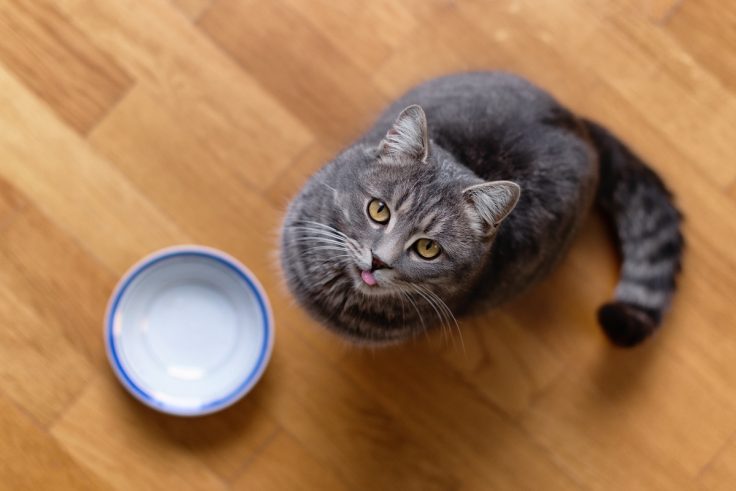
What does a cat eat: they are lactose intolerant
Taurine, an essential amino acid in their diet
Among the many nutrients necessary for the proper functioning of the cat's body, taurine plays a crucial role. This substance is an amino acid only found in animal proteins, and it notably ensures the heart health and vision of our felines. Taurine deficiency can lead to serious illnesses, such as dilated cardiomyopathy or blindness.
The cat's food needs according to its age
It's crucial to consider your furball's age when it comes to providing him with food suited to his needs. Indeed, domestic felines go through different stages of their lives and their dietary needs vary accordingly. Here are some key things to consider:
The kitten: rapid growth and increased need for protein
When cats are in the kitten stage, they experience rapid growth that requires a large amount of energy and essential nutrients. Kittens therefore need a diet rich in animal protein to support their development and strengthen their muscles, as well as sufficient fat to meet their energy needs.
The adult cat: maintenance of bodily functions and prevention of disease
Once they reach adulthood, cats require a balanced diet to maintain their health and avoid becoming overweight. This must contain the right proportion of animal proteins, fats, vitamins and minerals. Lower calorie and fat levels may be necessary for some adult felines with a tendency to be overweight.
The senior cat: adaptation to the needs of an aging body
As our cats age, their physical activity decreases and their energy needs drop accordingly. It is preferable to choose foods specifically formulated for senior felines, which contain a reduced fat content while maintaining quality protein intake. Additionally, the presence of certain vitamins and minerals can help support the functioning of the immune system in older cats.
Feeding cats: favor complete and suitable foods
To meet the specific needs of cats, there are different types of food on the market designed specifically for domestic felines. Whether kibble or pâtés, the main thing is to choose quality products, rich in meat or fish and adapted to the age and lifestyle of your cat. Here are some key points to consider when purchasing:
- A high level of animal proteinsmainly from meat or fish, to provide your feline with the essential amino acids it needs;
- Sources of animal fatsincluding omega-3 and omega-6, beneficial for skin, coat and brain function;
- Limited carbohydrate content, because cats do not need a large amount of energy in this form;
- The presence of vitamins and minerals necessary for the proper functioning of the cat's body, such as taurine, calcium, phosphorus and vitamins A, D and E.
In short, to ensure the health and well-being of your cat, be sure to provide him with a diet adapted to his specific needs as a strict carnivore. Do not hesitate to consult a veterinarian for personalized advice on feeding your feline companion.
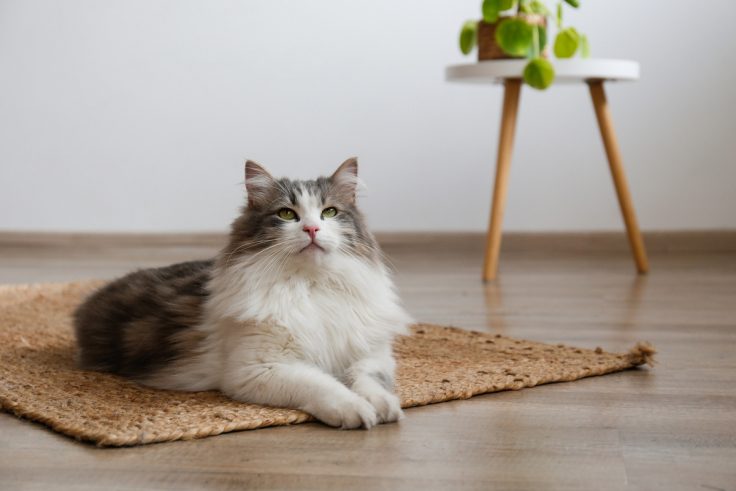
What does a cat eat: complete foods
Nutrition for a cat in the wild
In the wild, cats are carnivorous predators, meaning they eat primarily meat. Their diet in the wild consists primarily of prey that they hunt, such as birds, mice, small mammals, insects, and sometimes reptiles or fish.
This diet rich in animal proteins provides them with the elements necessary for their survival and health. Wild cats have digestion adapted to this carnivorous diet, with a short and efficient digestive system that allows them to quickly digest meat and assimilate the nutrients they need.
In addition to meat, wild cats may sometimes consume grass or other plants, not only to help regulate their digestion but also to obtain certain nutrients found in plants.
It should be noted that the nutritional needs of domestic cats may be different from those of their wild counterparts due to their lifestyle and metabolism. This is why it is important to choose commercial foods specially formulated for domestic cats, which contain the nutrients necessary for their health and well-being.

